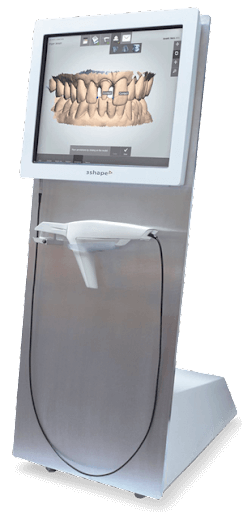Dentures are an excellent option for patients who have missing teeth or who have had their teeth extracted. While traditional dentures have been around for a long time, flexible partial dentures have become an increasingly popular alternative due to their flexibility, comfort, and aesthetic appeal.
Flexible partial dentures are made of a flexible, nylon material that adapts well to the shape of the mouth, making them more comfortable than traditional dentures. They are also less bulky and more discreet, making them an excellent option for patients who are self-conscious about their appearance. If you are a dentist and wondering if a patient is eligible to receive flexible partial dentures among all the available varieties of full and partial dentures, here are some essential factors to consider in choosing the right candidates for this treatment to ensure successful treatment outcomes.
Oral Health
The first thing to consider is the overall oral health of the patient. Patients with good oral health are better candidates for this treatment option as it helps to maintain healthy teeth and gums.
Patients who have gum disease, tooth decay, or other dental problems may not be good candidates for flexible partial dentures. It is essential to treat any existing dental issues before considering flexible partial dentures
Number of Missing Teeth
Flexible partial dentures are designed to replace one or more missing teeth. Patients who have many missing teeth may not be good candidates for flexible partial dentures as they may require a more complex treatment plan. In such cases, traditional dentures may be a better option.
Bone Density
The success of flexible partial dentures depends on the patient’s bone density. Patients with low bone density may not be good candidates for flexible partial dentures as the dentures may not stay securely in place.
Patient’s Age
Age is an essential factor to consider when choosing patients for flexible partial dentures. Younger patients who have lost teeth due to injury or disease may be good candidates for flexible partial dentures, while older patients who have lost teeth due to age-related issues may not be suitable candidates. Older patients may also be more prone to gum disease, which can affect the success of the partial denture treatment.
Patient’s Lifestyle
Patients who have an active lifestyle, such as athletes or people who participate in contact sports, may not be good candidates for flexible partial dentures. In such cases, traditional dentures may be a better option.
Patient’s Expectations
It is essential to understand the patient’s expectations before recommending flexible partial dentures. Patients who are looking for a more natural-looking and comfortable alternative to traditional dentures may be good candidates for flexible partial dentures.
Tooth Mobility
The flexibility of the partial denture makes it an ideal option for patients with mobile teeth. However, it is important to evaluate the extent of tooth mobility and determine whether a flexible partial denture would be suitable for the patient.
Medical History
The patient’s medical history is an important factor to consider before choosing a patient for a flexible partial denture. Patients with certain medical conditions may not be suitable for this treatment option.
Patient Compliance
Patient compliance is an important consideration when choosing a patient for a flexible partial denture. Patients who are willing to follow instructions and take good care of their oral health are better candidates for this treatment option.
Financial Considerations
The cost of treatment is an important consideration when choosing a patient for a flexible partial denture. It is important to evaluate the patient’s financial situation and determine whether this treatment option is feasible for them.

